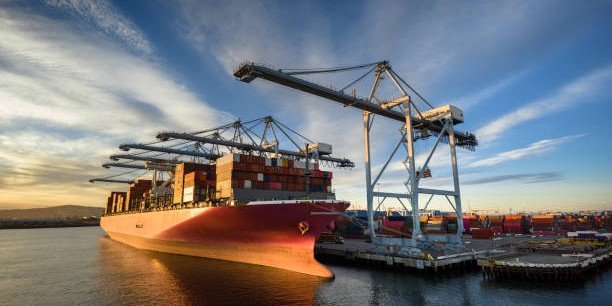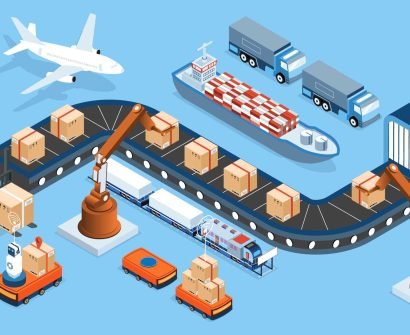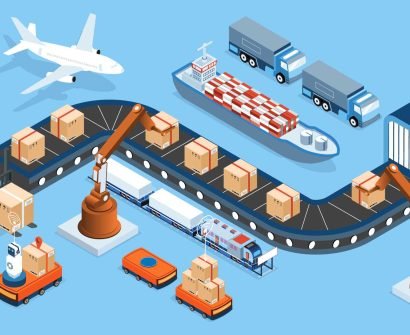
In Coursave, a business logistics course relates to a crucial component in the overall strategy of a company. It involves managing the flow of goods and services from the point of origin to the final consumer. It equips individuals with the essential skills and knowledge required to optimize the movement and storage of products, reduce operational costs, and improve the efficiency of supply chains.
Business Logistics Course
The business logistics course is designed for individuals aiming to pursue a career in operations or supply chain management. It covers a wide array of topics, each playing a pivotal role in the effective management of the supply chain. One of the real foundational topics in a logistics course is supply chain management.
Students learn how to design, manage, and optimize the flow of goods and services throughout the entire supply chain, from suppliers to consumers. They are introduced to various types of supply chains, such as push and pull systems, and how each can be applied to different business models.
Proper inventory management is critical to ensuring that goods are available when needed without overstocking or understocking. A business logistics course teaches how to use different inventory control techniques such as Just-in-Time (JIT), Economic Order Quantity (EOQ), and ABC analysis.
It also examines the role of technology in managing inventory, like barcode scanning systems and Enterprise Resource Planning (ERP) software. Efficient transportation is at the heart of logistics. In this module, students delve into various transportation modes (road, rail, air, and sea), their advantages and disadvantages, and how to select the most cost-effective and reliable option.
A business logistics course also teaches about transportation planning, route optimization, and the role of third-party logistics (3PL) providers. Warehousing is another essential aspect of logistics, involving the management of facilities where goods are stored temporarily. Students learn about warehouse layout planning, storage techniques, material handling systems, and automation.
They explore how to reduce operational costs while maximizing storage capacity and ensuring timely order fulfillment. Technology plays an increasingly important role in logistics. Students in these courses are exposed to the latest software and systems used to manage the whole processes.
These include transportation, warehouse and supply chain management systems and softwares. A business logistics course teaches how these technologies help streamline operations, reduce human error, and improve the speed and accuracy of logistics activities. As businesses expand globally, understanding international logistics becomes vital.
In this part of the course, students learn about cross-border logistics, customs regulations, international trade agreements, and the challenges of global supply chains. They are also introduced to the concept of freight forwarding, which involves the coordination of shipments from one international location to another.
With growing concerns about environmental impact, sustainability has become an essential topic. A business logistics course teaches how to implement eco-friendly logistics strategies, such as reducing carbon emissions, optimizing fuel consumption, and adopting green packaging. It also explores the role of reverse logistics, which involves managing the return of goods for recycling or disposal.
Effective risk management ensures the continuity of operations during unforeseen disruptions. In this module, students learn how to identify potential risks in the supply chain, such as natural disasters, labor strikes, geopolitical instability, and how to develop contingency plans to mitigate these risks.
A business logistics course is designed to develop both technical and soft skills that are highly valued in the industry. Professionals need to be able to analyze data related to inventory levels, transportation costs, and supply chain performance. This course helps students develop the analytical thinking needed to make data-driven decisions that can improve operational efficiency.
Supply chain disruptions and inefficiencies are common challenges in logistics. Students are trained to think critically and creatively to solve problems that arise in logistics management. Whether it’s finding an alternative supplier or optimizing delivery routes, problem-solving is a key aspect of the course.
Logistics professionals often work with different stakeholders, including suppliers, customers, and team members. A business logistics course emphasizes the importance of clear and effective communication, both written and verbal, to ensure smooth coordination and avoid misunderstandings.
Many logistics operations require planning and executing complex projects. Students are trained in project management techniques, including scheduling, budgeting, resource allocation, and risk management. These skills are valuable for managing logistics operations efficiently. As the world becomes more digital, understanding and using technology is essential.
Our business logistics course equips students with the knowledge of how to use logistics software and other technological tools to enhance supply chain efficiency. Upon completing it, individuals can pursue a variety of career paths in logistics and supply chain management. Some of the common job roles include overseeing the entire logistics operation of a company, including transportation, inventory, and warehousing.
These roles also involve analyzing data related to supply chain performance and providing insights for improvements, managing inventory levels and ensuring the optimal flow of goods, planning and managing transportation logistics, including selecting the best modes and routes, overseeing logistics operations to ensure efficiency, cost-effectiveness, and timely delivery, in addition to facilitating the import and export of goods.
A business logistics course provides a comprehensive foundation in the principles and practices necessary for managing the flow of goods in modern supply chains. It combines theoretical knowledge with practical skills, preparing individuals for the dynamic and challenging field of logistics.











